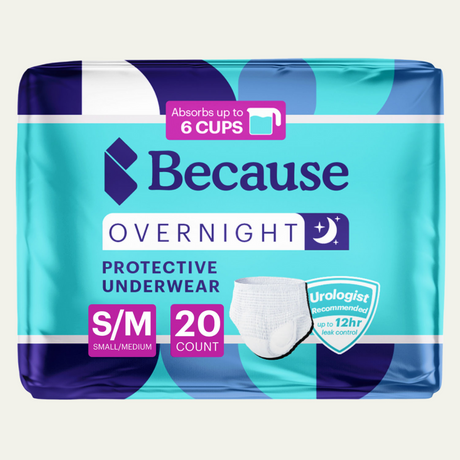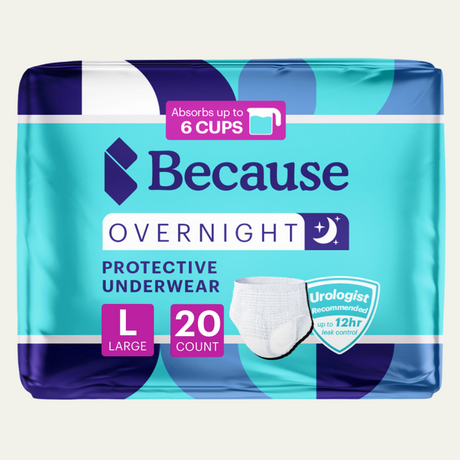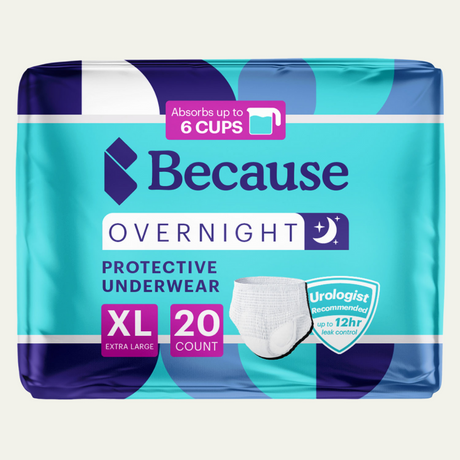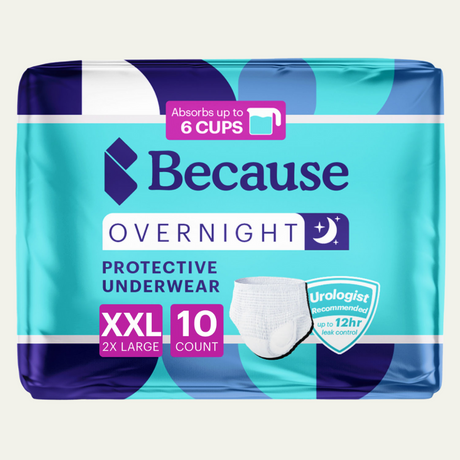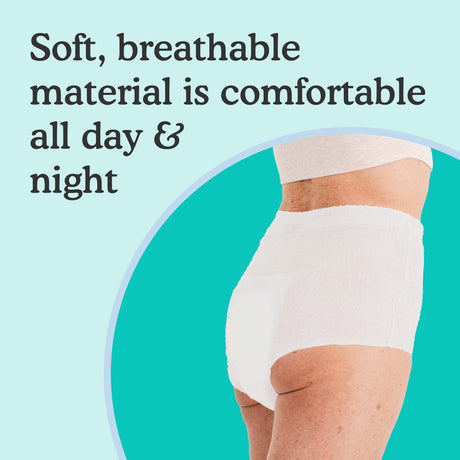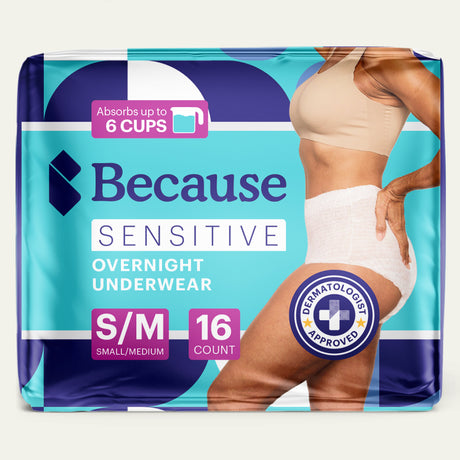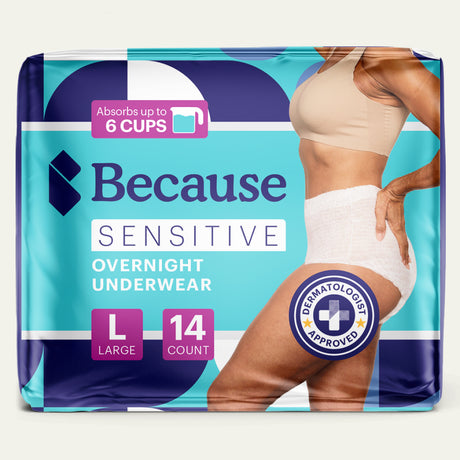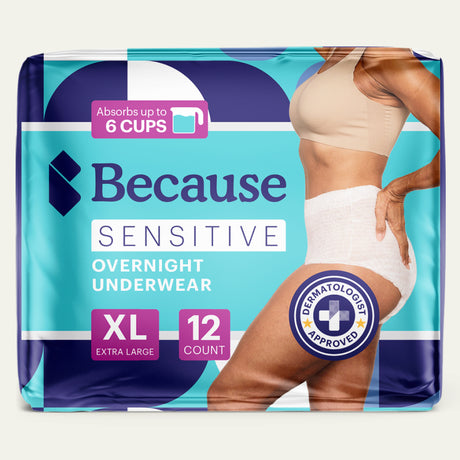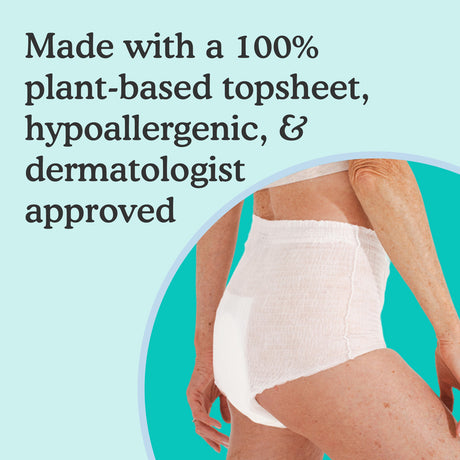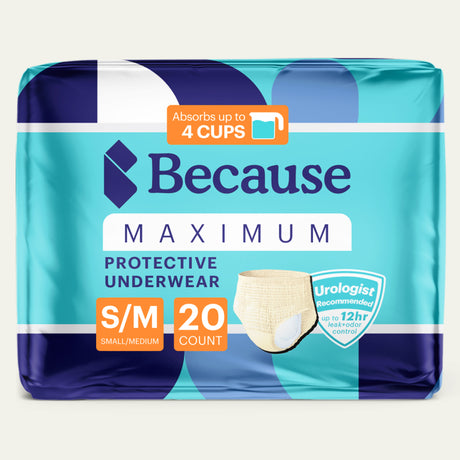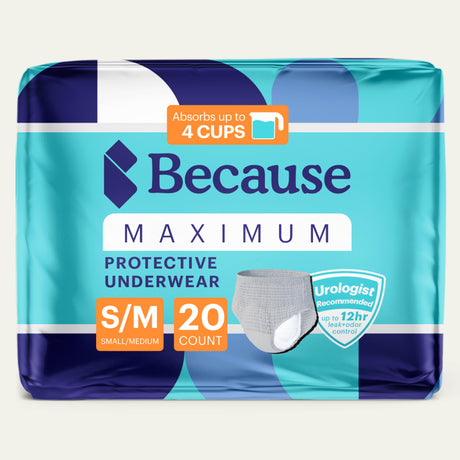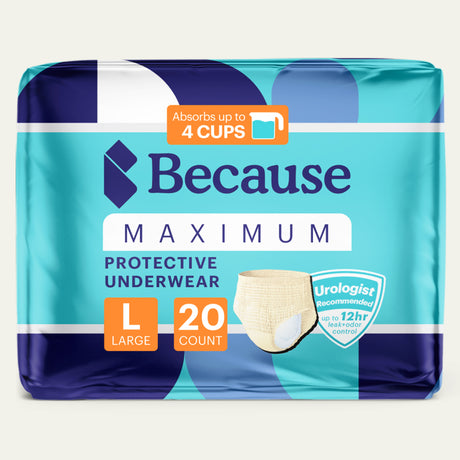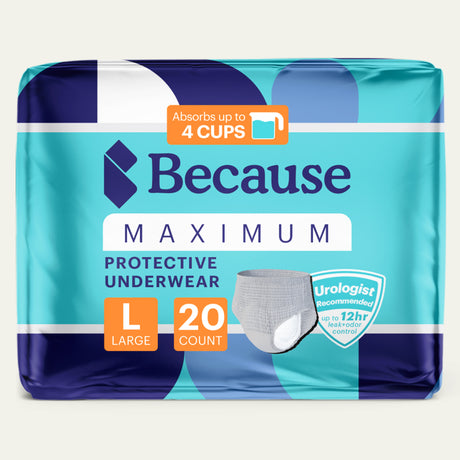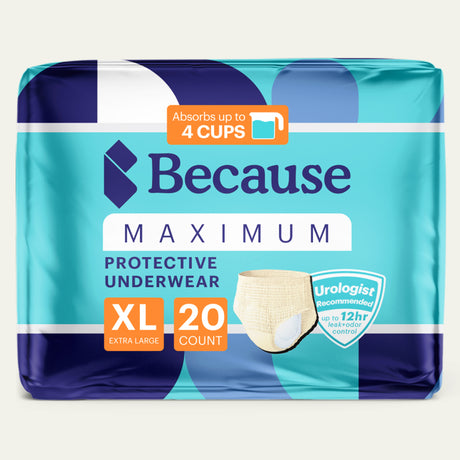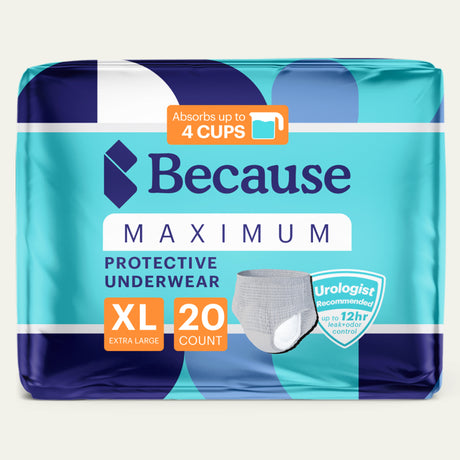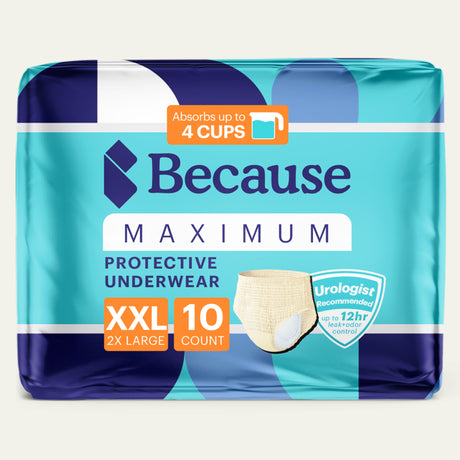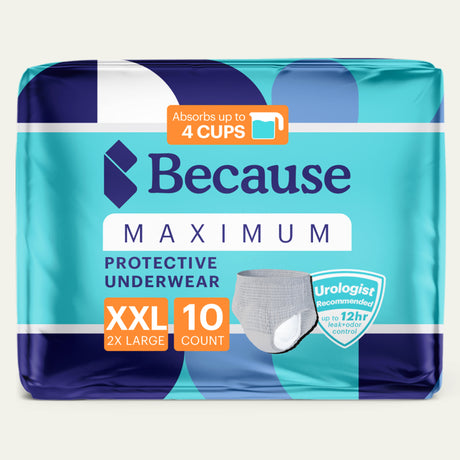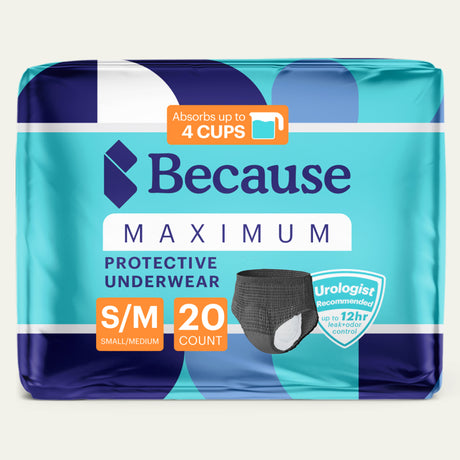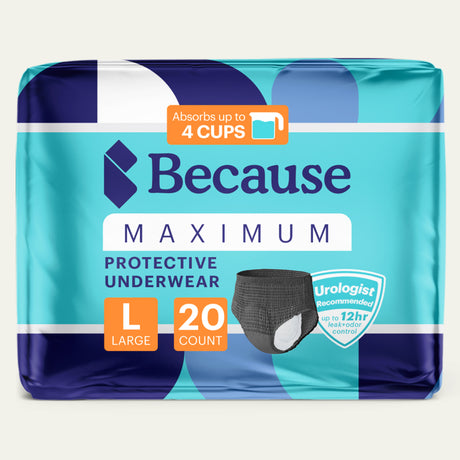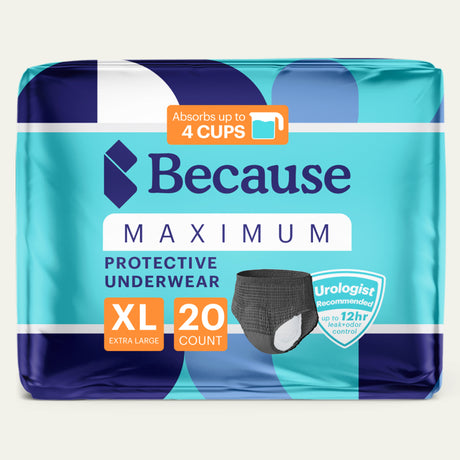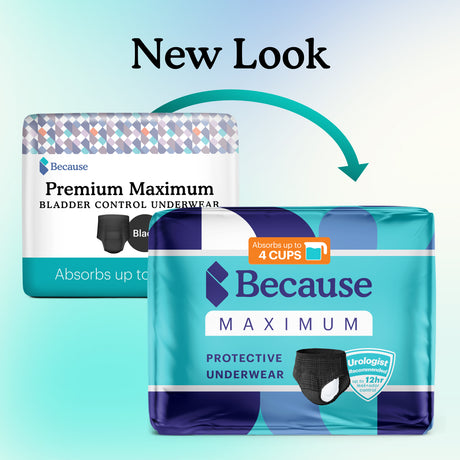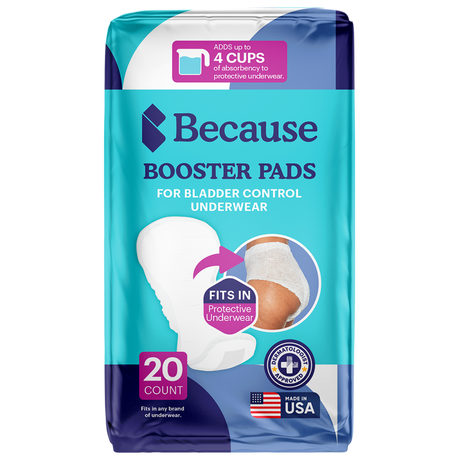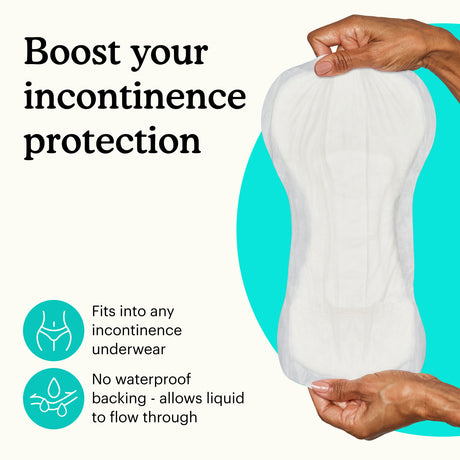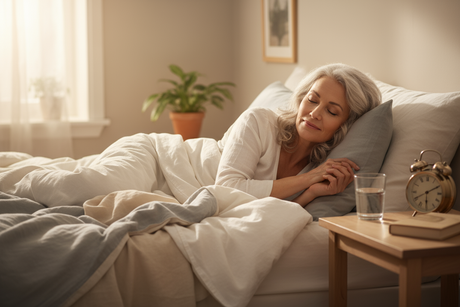If you've recently begun experiencing occasional bladder leaks or have noticed them becoming more frequent, you might be asking yourself, 'Is it time to start wearing adult diapers?' Dealing with new or worsening incontinence can feel overwhelming, but it's important to know you're not alone. Approximately 25 million Americans live with urinary incontinence, and 1 in 2 women will experience bladder leaks at some point in their lives. If you're unsure about how to manage your incontinence, this quiz can help you decide whether adult diapers, pads, or liners might be the right solution for you.
Now that you’ve taken the quiz and gotten your result, you may be ready to jump over to selecting the right adult diaper or pad for you, or you may want some additional information before you make your decision. This next section will detail some pro’s and con’s of each option.

Pros & Cons of Diapers
Adult diapers are a great choice for those with moderate to heavy bladder leaks, mobility issues, or people who struggle with nighttime incontinence.
Pros:
- Heavier absorbency
- No need for additional underwear
- More sizing/shape options
- Fits can be customizable with tabbed options
- Typically have stronger leak protection
Cons:
- Can be bulky
- Sizing varies between brands so you have to try each one
- More expensive
- Harder to change on-the-go
- Don’t allow for as much breathability
Pros & Cons of Pads & Liners
Pads, or guards for men, and liners are a better choice for those with lighter leaks. Pads usually come in regular lengths and long lengths and a variety of absorbencies.
Pros:
- Less bulky
- Easy to change (just like a menstrual pad)
- More discreet
Cons:
- Can’t absorb more than a few cups
- Can get heavy when at full saturation
- Less capability to distribute moisture leading to a less dry feel
If you’re still not sure which product is right for you, or which product you need based on your absorbency needs, take this bladder protection quiz!

Other Incontinence Supplies to Consider
In addition to absorbent underwear, pads, guards, and liners, there are several other products designed to manage bladder leaks effectively. Disposable bed protectors and reusable under pads can help protect your furniture and bedding from nighttime leaks, while booster pads provide extra absorbency to any adult diaper, making changes less frequent and more convenient.
Personal care products play a crucial role in maintaining skin health as part of your incontinence care routine. Barrier creams protect the skin from irritation caused by moisture and prolonged contact with urine or feces. No-rinse cleansing sprays offer a quick, on-the-go solution to staying clean, and pH-balanced wipes are ideal for gentle and effective cleanup after a leak.
Finally, odor-proof disposal bags offer a discreet way to manage product changes outside the home or to contain odors within your trash, keeping your environment fresh and hygienic.
Getting Support
If you're new to incontinence or notice your symptoms worsening, seeking support from healthcare professionals and incontinence-focused support groups can provide valuable guidance and reassurance. A healthcare provider, such as a urologist or a specialist in pelvic health, can help you understand the underlying causes and recommend treatments, lifestyle changes, or products that fit your needs. Additionally, joining a support group—whether online or in person—allows you to connect with others who face similar challenges, offering emotional support and practical tips for managing incontinence in daily life.
Join one of our private support groups using the links below:
Women’s Incontinence Support Group
Men’s Incontinence Support Group
Sources:
(n.d.). Urinary Incontinence in Women. Johns Hopkins Medicine. https://www.hopkinsmedicine.org/health/conditions-and-diseases/urinary-incontinence/urinary-incontinence-in-women
Khalife, T. & Anil, Gokhan. (2022, Nov. 7). Is urine incontinence normal for women? Mayo Clinic Health System. https://www.mayoclinichealthsystem.org/hometown-health/speaking-of-health/is-urine-incontinence-normal-for-women


